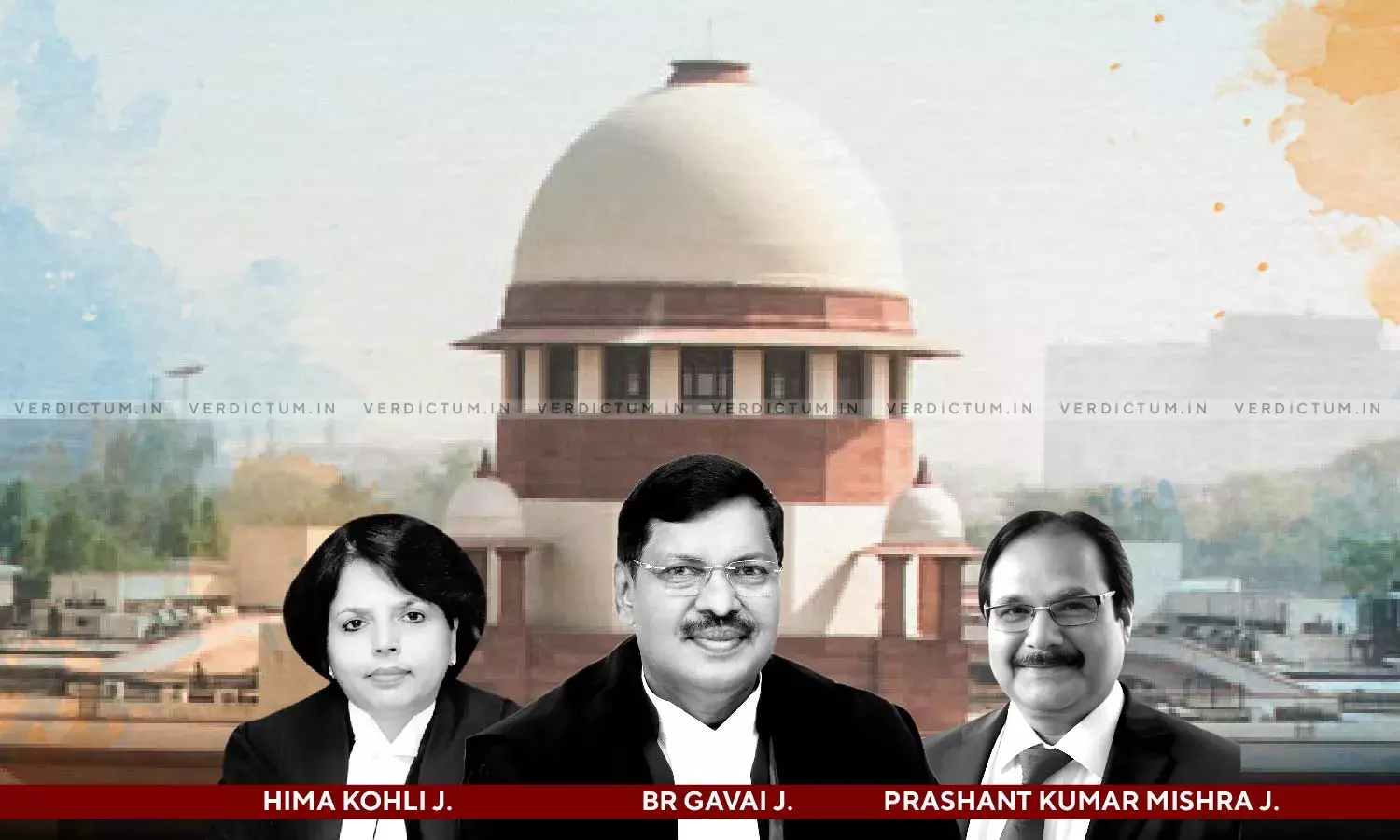Confessional Statement Recorded By NCB Officers U/s. 67 Of NDPS Act Is Not Admissible As Evidence: SC While Acquitting Accused

The Supreme Court has acquitted an accused named Balwinder Singh saying that the confessional statement was recorded by NCB (Narcotics Control Bureau) officers under Section 67 of NDPS Act (Narcotic Drugs and Psychotropic Substances Act, 1985) and that there was no other independent incriminating evidence that was brought by the prosecution for convicting him.
The Court was deciding a batch of two criminal appeals filed by two men named Balwinder Singh and Satnam Singh who had challenged the judgment passed by the Division Bench of the Punjab and Haryana High Court whereby the death sentence imposed upon Balwinder was set aside and a rigorous imprisonment of 14 years was imposed upon him. The appeals preferred by the accused were dismissed except for the modification in the order of sentence.
The three-Judge Bench comprising Justice B.R. Gavai, Justice Hima Kohli, and Justice Prashant Kumar Mishra held, “Once the confessional statement13 of the co-accused, Satnam Singh5 recorded by the NCB officers under Section 67 of the NDPS Act, who had attributed a role to Balwinder Singh3 and the subsequently recorded statement22 of Balwinder Singh3 himself under Section 67 of the NDPS Act are rejected in the light of the law laid down in Tofan Singh36 (supra), there is no other independent incriminating evidence that has been brought to the fore by the prosecution for convicting Balwinder Singh3 under the NDPS Act. On ignoring the said confessional statements13&22 recorded before the officers of the NCB in the course of the investigation, the vital link between Balwinder Singh3 and the offence for which he has been charged snaps conclusively and his conviction order cannot be sustained.”
The Bench said that Balwinder deserves to be acquitted of the charge of being in conscious possession of commercial quantity of heroin under the NDPS Act.
Advocates Mayank Dahiya and Akshay Nagarajan appeared for the appellants/accused while ASG Vikramjeet Banerjee and Advocate B. Krishna Prasad appeared for the respondent/NCB.
Factual Background -
The NCB received secret information that some persons who were indulging in the sale of contraband, were travelling in a white coloured Indica car from Amritsar to supply contraband at a bus stand at Chandigarh. A Naka was laid by the NCB team at Chandigarh and two independent witnesses were associated in the investigation. At 03:15 am, the NCB team noticed that a car stopped at a little distance from the place of Naka and two persons wearing turbans alighted from the car and ran away. However, the third person, also wearing a turban who had later on disclosed his name as Satnam Singh, remained seated in the car. Members of the NCB team intercepted the vehicle and searched Satnam Singh in the presence of the independent witnesses and on searching the car, they found two packets wrapped in a khaki tape in the cavity of the door panel.
On unzipping the seat cover of the rear back seat of the vehicle, two more similar packets wrapped in khaki tape were recovered. The prosecution claimed that on inquiry, Satnam Singh disclosed that the packets contained heroin that he had brought from Amritsar with the assistance of Balwinder Singh and another person for sale in Chandigarh. The NCB officers seized all the four packets and after taking out two representative samples, sealed them. The Special Court held both the accused guilty and thereafter, they approached the High Court. The High Court convicted them under the NDPS Act and hence the matter was before the Supreme Court.
The Supreme Court in view of the facts and circumstances of the case observed, “… we are of the opinion that the prosecution was able to discharge the onus cast on it to prove the foundational facts. Thus, the initial burden of proving that the appellant – Satnam Singh5 had the knowledge that the car9 owned and being driven by him at the relevant point in time was being used for transporting narcotics, stood discharged. Once it is concluded that the prosecution had produced adequate evidence to prove beyond reasonable doubt that the accused – Satnam Singh5 had the knowledge, the presumption contemplated under Section 35 of the NDPS Act would have to be drawn against him to hold that he had a culpable mental state for indicting him for the offence for which he had been charged.”
The Court noted that sub-section (4) of Section 100 CrPC provides that to maintain the purity of the process, before undertaking a search, a couple of independent and respectable inhabitants of the locality where the place to be searched is located, be joined as witnesses to the search.
“… we are of the opinion that the appellant – Satnam Singh5 has failed to make out a case for acquittal. Therefore, the order of conviction and the sentence imposed on Satnam Singh5 is maintained”, concluded the Court.
Accordingly, the Apex Court dismissed the appeal of Satnam Singh and affirmed the judgment of the High Court while allowed the appeal of Balwinder Singh and acquitted him.
Cause Title- Balwinder Singh (Binda) v. The Narcotics Control Bureau (Neutral Citation: 2023INSC852)


